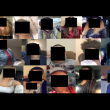Security breaches within networks are far more common than we realize. Even when we think that we have locked down our systems well, there might still be some gaps in security that allow hackers or malware in.
In recent years, the concern over Verizon FiOS router security has arisen as well. If you have Verizon FiOS and are concerned about your router’s security, we have some information to help you.
It is also worth noting that just a couple of days ago, Verizon Fios was named the fastest Internet service provider which is great news for users but also gains attention from cybercriminals. Therefore, security for Verizon FiOS users should be a top priority.
Past Security Problems
In 2019, it was revealed that Verizon FiOS Quantum Gateway WiFi routers had some security vulnerabilities that put Verizon networks in danger. The security vulnerabilities were identified as the following:
- Login and password issues: The first security problem was a login replay and password salt disclosure flaw. It allowed network-based attackers to intercept any login requests and then replay them so that it could get it itself.
- URL retrieval: Another flaw was that an unauthenticated attacker to retrieve the value of the password by going to a URL on a browser. The hackers would just capture a login request and find the password.
- Command injection flaw: The attackers could input a hostname that would change the firewall command, allowing the malware inside of the network.
Verizon released updates and patches to correct these major security breaches, but naturally, people are worried that using Verizon routers are putting themselves at risk. It is understandable, but there are some things that you can do to provide yourself with a level of protection, even if there are any lapses in security.
What you can do
There are some things that you can do to protect your network in addition to the steps that Verizon took to supply you with more protection.
1- Confirm your router is updated
You should make sure that your Verizon FiOS router is up to date as well. There are always patches and updates to be had as more malware and other viruses are created or found. The only defense against this is to make sure that you are as up to date as possible.
Verizon has admitted that automatic updates are an issue that they are continuing to address and try to work out. That means that the updates might not happen on their own. You need to be checking your router regularly to see if there are any updates that you should be doing.
2- Change your passwords
Hackers and other malicious cybercriminals look for any weakness possible to get inside of people’s networks and weak passwords are definitely an entry-point. Your password to your network needs to be completely unique and difficult to guess.
Do not use names or birthdates, because they are easily guessable and not secure enough. You need to use a password that is hard to come up with, though you might need to have it written somewhere if it is too difficult to memorize.
3- What kind of logins do you use?
Another thing to think about is what your login process looks like. If you have the option to use two-factor authentication, you need to be using it. Two-factor authentications will also for your login information and then text you a code to your mobile device to confirm that you are the one logging in.
What to do if your information has been stolen
If a hacker has made it into your network and stolen your personal, financial information, there are some steps that you should take immediately to protect yourself from further damage. Of course, you will need to better secure your network by following the steps above, but there are people you need to contact as well.
- Hire a cybersecurity firm for a quick check: A cybersecurity firm will not only scan your network for existing threats but also identify vulnerabilities that allowed hackers to breach your network in the first place. It can then fix those loopholes to protect your business from further attacks.
- The FTC: If you know that you have been hacked and have had your identity stolen, you should contact the FTC. They can help with documentation.
- Your bank: Your bank will be able to help you sort through unusual spending on your account and processing any claims.
- Your friends and family: Let your family and friends know what is going on so they can keep a lookout for any bizarre messages from you.
Did you enjoy reading this article? Do like our page on Facebook and follow us on Twitter.









